Stuart had planned on finishing his sowing the last week we spoke and things worked out that way. He finished planting oats at the end of September. He had started planting early as he is using a direct drill.
Getting in ahead of the rain allowed all crops that needed to be treated for weeds to receive a herbicide.
The fields where the oats were planted have some chickweed. DFF was applied to the oat crops at 0.25 L/ha.
Any of the wheat which was expected to have high weed levels received Firebird Met, but some fields only received herbicide on the headlands. The remainder of the field had received glyphosate at sowing as Stuart was planting into green covers and he is hopeful this will cover off any weed control.
Winter barley was planted into volunteer oilseed rape with the John Deere 750A direct drill and the rape has now died off and the winter barley is doing very well. No aphicides were applied on the farm. Stuart has not applied an aphicide for many years. Teagasc is monitoring aphid numbers on the farm with insect traps and they appeared to be very low when the crops were emerging.
Some of the winter barley on the farm is KWS Joyau which claims to have a tolerance to barley yellow dwarf virus.
The winter wheat crops are made up of mixtures of varieties which might also help to lower the risk of virus and disease in these crops. With crops up and sprayed, Stuart is very happy as weather conditions would make it very difficult to get out on land at present.
Looking to the year ahead, the cover crops and his focus on improving soil health might help to improve fertiliser use efficiency.
Stuart was happy with how dissolved urea worked for him this year and will continue to try and improve efficiencies on the farm.
James was happy to have his crops planted as he looked out on wet weather at the end of October, but this did not come without a worry over risk of virus.
Crops are all sown and established. Some have received a herbicide and, perhaps more importantly, some crops have received an aphicide but not all of them.
James sees barley yellow dwarf virus as a risk due to high temperatures, but he can do nothing until ground becomes trafficable. Temperatures were around 15°C at the weekend.
All crops are germinated at this stage and there is water lying in corners of fields and odd spots, but overall the farm is not too badly affected by the rain.
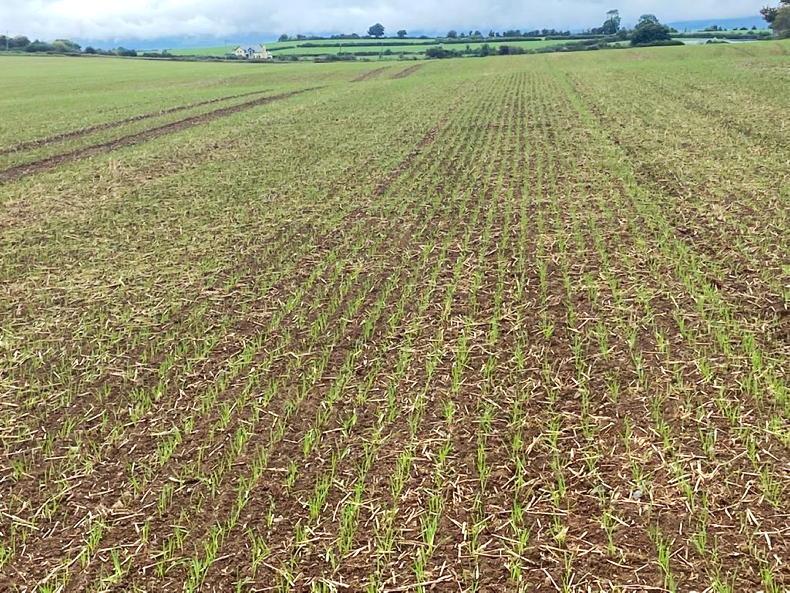
The winter cereals are all emerged on James English's farm.
Many of the winter cereal fields were not rolled and James is glad of that as the heavy rain has done enough to consolidate soil.
About 150ac of winter barley and winter wheat were treated with an aphicide, but James also has winter barley with no herbicide or aphicide applied.
Some of the winter barley received a pre-emergence herbicide of Firebird Met at 0.75L/ha. Firebird Met was also used on the winter wheat which had been sprayed.
The Husky oats were planted on 14 October and had one single leaf emerged at the weekend. James planned to apply DFF to this crop, but rain put a stop to this.
Slugs have not been an issue on cereal crops and hopefully crops have passed the attraction for crows.
Winter oilseed rape received Prosaro and this will act as a fungicide with some growth regulator action. Boron was applied at the same time and the crop is doing very well with a good canopy which will hopefully help to save on nitrogen.
Away from the fields machinery is being serviced and prepared for the next season already.
Rain, rain and even more rain is how Shane Nolan described his farm activity for the past few weeks.
When last featured in early October, he was holding off on planting winter barley until after the middle of the month and he was hoping to begin maize harvesting that week.
Well, the maize is all harvested (contract work) but none of the winter barley is planted.
The land would normally be dry and free-draining but there was just too much rain in recent weeks, Shane stated.
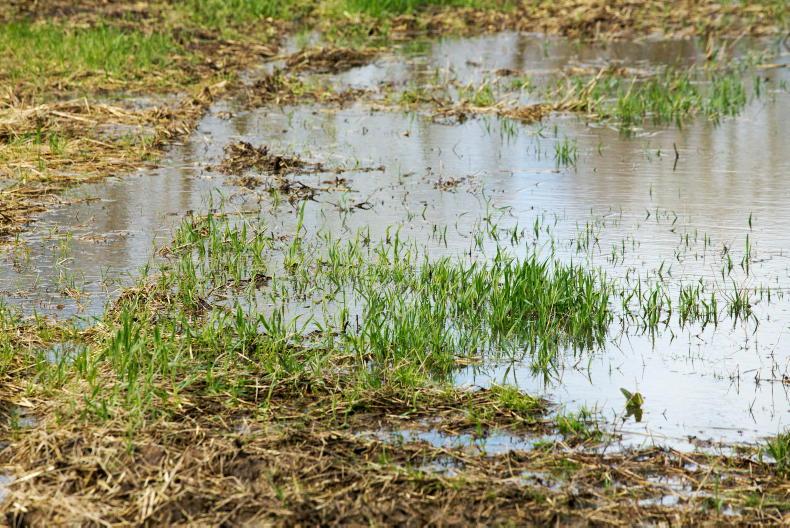
Recent heavy rain has made it impossible to get out on land for any further planting this season. \ David Ruffles
It is highly unlikely that any winter barley will be sown at this point, Shane said. It is tool late. Even if the ground did dry out sufficiently, the risk from significant crow damage is just too great.
Crows are a major problem in that part of the country and they are very active. “They are best described as an epidemic”, Shane stated.
In the past, crows came to tilled fields in their tens, nowadays they seem to come in their hundreds or thousands. The field would go black when they arrive.
Shane is of the view that something needs to be done – the numbers are just too high to avoid a regular problem. Perhaps a hard winter would help to sort out the problem.
He did manage to sow a small area of winter oats, only about five acres, but containing crow damage was a real challenge. It is emerged now and, thankfully, it looks fine.
The past few weeks have been busy in the workshop too, getting gear repaired and ready for the coming season. The higher cost of replacement parts has now become very obvious.
Beet harvesting is the next big job to be tackled. Shane has 23 acres of his own beet and he also has an amount to harvest for others.
He would certainly like to see a period with no rain before he begins harvesting, as it could fairly make a mess of land.
Stuart had planned on finishing his sowing the last week we spoke and things worked out that way. He finished planting oats at the end of September. He had started planting early as he is using a direct drill.
Getting in ahead of the rain allowed all crops that needed to be treated for weeds to receive a herbicide.
The fields where the oats were planted have some chickweed. DFF was applied to the oat crops at 0.25 L/ha.
Any of the wheat which was expected to have high weed levels received Firebird Met, but some fields only received herbicide on the headlands. The remainder of the field had received glyphosate at sowing as Stuart was planting into green covers and he is hopeful this will cover off any weed control.
Winter barley was planted into volunteer oilseed rape with the John Deere 750A direct drill and the rape has now died off and the winter barley is doing very well. No aphicides were applied on the farm. Stuart has not applied an aphicide for many years. Teagasc is monitoring aphid numbers on the farm with insect traps and they appeared to be very low when the crops were emerging.
Some of the winter barley on the farm is KWS Joyau which claims to have a tolerance to barley yellow dwarf virus.
The winter wheat crops are made up of mixtures of varieties which might also help to lower the risk of virus and disease in these crops. With crops up and sprayed, Stuart is very happy as weather conditions would make it very difficult to get out on land at present.
Looking to the year ahead, the cover crops and his focus on improving soil health might help to improve fertiliser use efficiency.
Stuart was happy with how dissolved urea worked for him this year and will continue to try and improve efficiencies on the farm.
James was happy to have his crops planted as he looked out on wet weather at the end of October, but this did not come without a worry over risk of virus.
Crops are all sown and established. Some have received a herbicide and, perhaps more importantly, some crops have received an aphicide but not all of them.
James sees barley yellow dwarf virus as a risk due to high temperatures, but he can do nothing until ground becomes trafficable. Temperatures were around 15°C at the weekend.
All crops are germinated at this stage and there is water lying in corners of fields and odd spots, but overall the farm is not too badly affected by the rain.

The winter cereals are all emerged on James English's farm.
Many of the winter cereal fields were not rolled and James is glad of that as the heavy rain has done enough to consolidate soil.
About 150ac of winter barley and winter wheat were treated with an aphicide, but James also has winter barley with no herbicide or aphicide applied.
Some of the winter barley received a pre-emergence herbicide of Firebird Met at 0.75L/ha. Firebird Met was also used on the winter wheat which had been sprayed.
The Husky oats were planted on 14 October and had one single leaf emerged at the weekend. James planned to apply DFF to this crop, but rain put a stop to this.
Slugs have not been an issue on cereal crops and hopefully crops have passed the attraction for crows.
Winter oilseed rape received Prosaro and this will act as a fungicide with some growth regulator action. Boron was applied at the same time and the crop is doing very well with a good canopy which will hopefully help to save on nitrogen.
Away from the fields machinery is being serviced and prepared for the next season already.
Rain, rain and even more rain is how Shane Nolan described his farm activity for the past few weeks.
When last featured in early October, he was holding off on planting winter barley until after the middle of the month and he was hoping to begin maize harvesting that week.
Well, the maize is all harvested (contract work) but none of the winter barley is planted.
The land would normally be dry and free-draining but there was just too much rain in recent weeks, Shane stated.

Recent heavy rain has made it impossible to get out on land for any further planting this season. \ David Ruffles
It is highly unlikely that any winter barley will be sown at this point, Shane said. It is tool late. Even if the ground did dry out sufficiently, the risk from significant crow damage is just too great.
Crows are a major problem in that part of the country and they are very active. “They are best described as an epidemic”, Shane stated.
In the past, crows came to tilled fields in their tens, nowadays they seem to come in their hundreds or thousands. The field would go black when they arrive.
Shane is of the view that something needs to be done – the numbers are just too high to avoid a regular problem. Perhaps a hard winter would help to sort out the problem.
He did manage to sow a small area of winter oats, only about five acres, but containing crow damage was a real challenge. It is emerged now and, thankfully, it looks fine.
The past few weeks have been busy in the workshop too, getting gear repaired and ready for the coming season. The higher cost of replacement parts has now become very obvious.
Beet harvesting is the next big job to be tackled. Shane has 23 acres of his own beet and he also has an amount to harvest for others.
He would certainly like to see a period with no rain before he begins harvesting, as it could fairly make a mess of land.










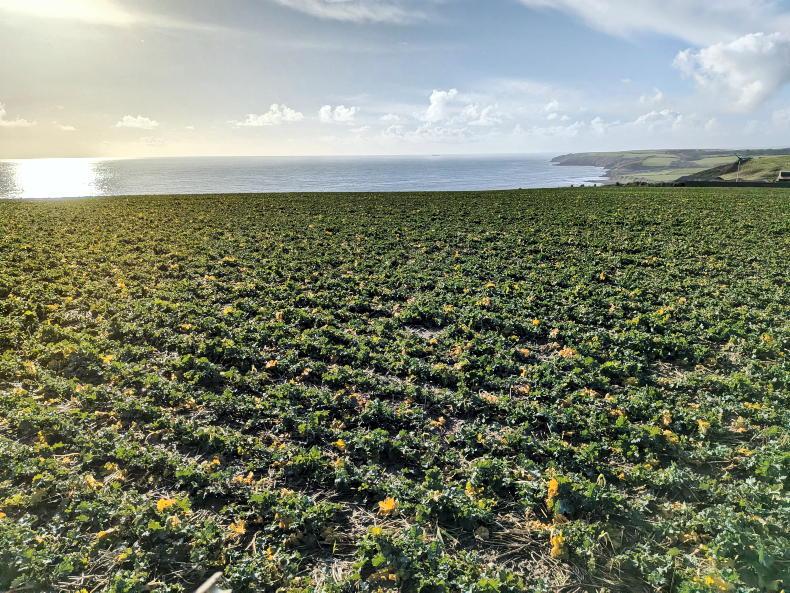
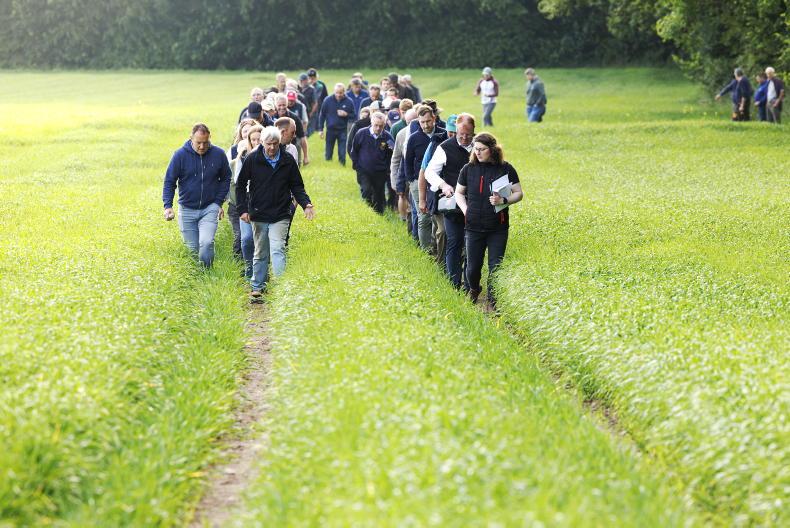
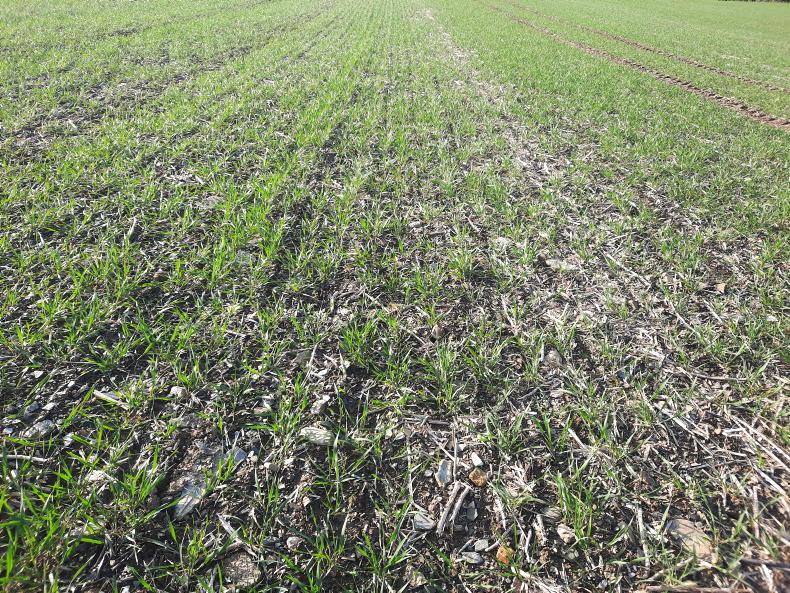
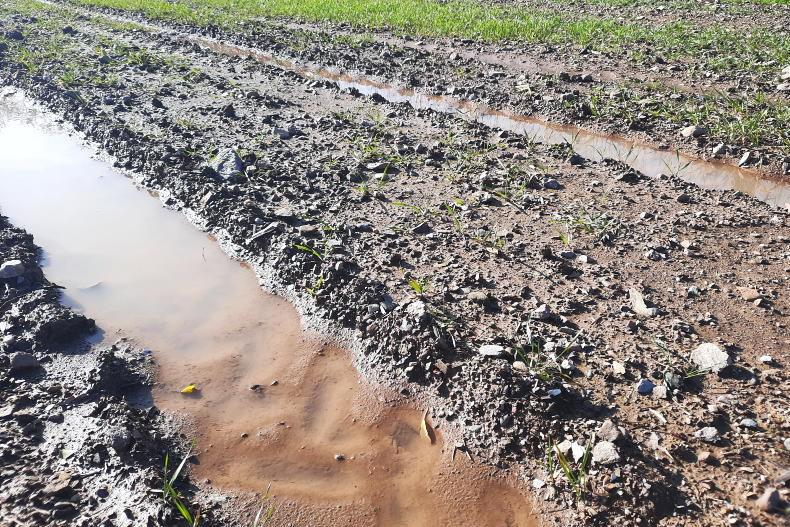
SHARING OPTIONS